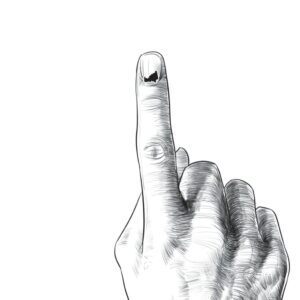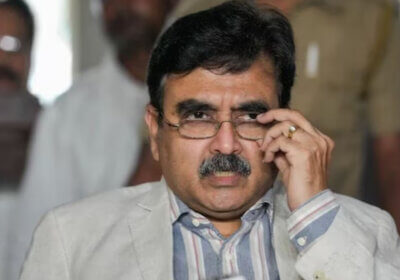Recently, the political knowledge of young Indians was put to the test in a video that went viral. In the film, they were asked questions about the “Rashtrapati” of Madhya Pradesh and Delhi’s “pradhan mantri”.
They were unable even to get the names of political figures right; they had no idea what the terms “rashtrapati” or “pradhan mantri” meant, and nobody brought up the fact that in India, the “mukhyamantri” is the position that oversees the administration of each state (chief minister).
They misspelt even the names of political officials; they had no understanding of what a “rashtrapati” or “pradhan mantri” was, and none of them noted that each Indian state had its own “mukhyamantri” (which translates to “chief minister”) (chief minister).
If the facts do not match up
My research led me to discover that the average urban young voter suffers from a disease known as “knowledge addiction.” Everyone started experiencing information overload once Google and the mobile phone were invented. Our phones are now so ingrained in our palms that it’s almost like they’re surgically attached.
When a supporter of Indian Prime Minister Narendra Modi tweets a photo of a newly paved road in Indonesia and claims that it is evidence of Modi’s “infrastructural push” in a “distant village” in India, the information addict accepts the tweet with enthusiasm, gets “a hit of bhakti,” and then shares the photo with thousands of other individuals via social media and/or WhatsApp.
Super-clever politician
It’s not hard to see why former Indian Finance Minister P. Chidambaram employs such fancy language when he talks about the ‘fiscal deficit,’ stating things like “The existing FRBM Act is fairly malleable.” The vast majority of us get flummoxed when confronted with very specialized terminology. This Act does establish a fiscal deficit aim, but if you fail to meet the target, all you have to do is go back and change the Act so that it reflects the fact that you did not meet the objective.
Suppose politicians wish to raise the level of political knowledge among younger voters. In that case, they must engage in conversation with public members and deliver information in a way that is easy to understand.
Idea of a win-win situation
In the general election of 2014, the Bharatiya Janata Party (BJP) saturated the allegedly ignorant Indian voter with all sorts of information, and no one bothered to check what it meant, which resulted in the Modi wave that swept the nation. The word “Gujarat model” came to be used by ordinary people to refer to an ideal society in which everything functioned perfectly as a direct consequence of successful marketing efforts and the subsequent impact such efforts had on the general population.
On the other hand, the model’s intended significance was never called into doubt. How much of Kyoto’s weather has made its way across the ocean to Gujarat? Have any of the voters enquired whether the state of Gujarat functioned in accordance with a one-of-a-kind set of regulations? If you questioned the effectiveness of the model used in Gujarat, you received an answer: “Go and see Gujarat.” It is a brilliant marketing phrase that depends on zero proof at all. But that doesn’t stop it from being effective.
What can we do to make up for the paucity of knowledge we currently have? The first thing that has to happen is that young voters need to be educated on how to question candidates and elected authorities. The assertion that a politician would “generate jobs” isn’t the only thing that should impress us about them. In the past, the Prime Minister has mentioned that frying pakodas by the side of the road was a lucrative job; thus, we need to either figure out where these opportunities will be developed or start doing it instead.
Residents of Delhi should be aware that there simply isn’t enough space in the congested Indian city to accommodate high-quality educational facilities. Even though the leaders of Delhi frequently promise residents that they will construct brand-new educational facilities, residents should know that there simply isn’t enough space. When political leaders in Karnataka suggest constructing a monument of “Mother Cauvery” for the sake of “tourism,” it is essential to consider the continuing maintenance expenditures. Why don’t we insist that the state clean up the lakes in Bangalore, which are turning into toxic hot tubs yearly? The state capital is Bangalore.
Function of erroneous reporting
What factors contribute to the success of those who distribute misleading information? Because they are certain that their bluff will not be called, or that the disinformation will have the intended impact as it spreads, the simplest explanation for this behaviour is that the individuals in question do not believe that they will be exposed. For example, political points can be scored through the manipulation of half-truths to sway an election in a particular direction. This occurs when Union Minister Smriti Irani retweets a doctored video to show Congress President Rahul Gandhi reneging on his promise to waive farm loans in Madhya Pradesh.
One such hypothesis is that Muslim woman Rehana Fathima went to the Sabarimala temple to deliver a message to the feminist community. In the end, it came to light that the individual portrayed as a campaigner was, in reality, active in the Hindu Right. There is evidence to imply that she intended to exacerbate existing tensions on a subject that has always been about women’s rights regardless of the so-called “Hindu-Muslim divide.” The voter continues to be the proverbial deer caught in the headlights.
Conclusion
A degree of intellect comparable to science fiction is not necessary for political success. The conversation between politicians and the people they represent becomes more complicated whenever they indulge in whataboutery. We will only be successful in stemming the flow of blood if we focus on the basics and insist that our leaders solve the problems of jobs, the economy, the infrastructure, the prevention of corruption, and social reform.

The Unaware Indian Voter























Leave a Reply